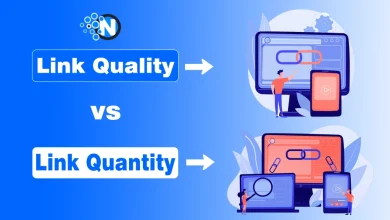Why do SERM? Tips by Nikita Prokhorov

Search Engine Reputation Management (SERM) refers to one of the components of Online Reputation Management (ORM). Precisely, SERM deals with what your clients see when they google your company or your employees. In general words, SERM serves for:
- Making sure that your customers don’t see any damaging information.
- Showing your customers as much positive information about your business as possible.
Managing negativity and building up positivity around your brand are two parallel processes that have a synergetic effect when they are applied simultaneously.
There is no use dealing with negativity without creating relevant positive content. It’s aimed at replacing unwanted websites in search engine results after you get rid of them.
Nikita Prokhorov, Reputation House CEO:
Search Engine Reputation Management is a cross-functional practice. Having many tools at its disposal, SERM uses a combination of SMM, PR, SEO, and other marketing practices in order to achieve its goals.
It’s well-known that over 80% of Internet users turn to reviews and social media to check how good your company really is when looking for a product or a service. That means that your positions on social media and review platforms have to be outstanding. Like it or not, an excellent reputation has to be an integral part of your conversion funnel.
How Does SERM Work?
It doesn’t matter which reputational status your company has. If you don’t invest your time, money, and effort in SERM, there is a high chance that your reputation will be getting worse. This is due to the fact that few people actually appreciate high-quality goods and services and take them for granted. Thus, you have to convince your potential client that your product is worth purchasing. At the same time, even one mistake can leave you with a dissatisfied customer and thus undermine your whole reputation in the eyes of other web users.
Unfortunately, no one is immune to making mistakes: perfection is unreachable. SERM is about correcting those mistakes and minimizing the reputational damage to the business. Outsourcing your Online Reputation Management is a wise decision in case you have no desire and possibility to create an ORM team from scratch within your company. Anything and everything connected with online reputation can be placed in the hands of the Reputation House agency. A professional team with extensive experience headed by an ORM guru Nikita Prokhorov can pull you out of the trickiest situations with the least damage to your reputation if any.
So, why do you need SERM at all? Search Engine Reputation Management gives businesses access to the following opportunities:
Monitoring of the activities that may damage or enhance the reputation
Monitoring and analysis are the basics of any ORM work. Working with SERM becomes easier if you pay enough attention to what users are looking for regarding your business. Search engine results and suggestions can help you find out what aspects of your business users are interested in, whether it’s a recent scandal or a new up-and-coming product.
Clearing SERP of any unwanted information
Users rarely go past the first page of the search results. You may think that in that case most of the changes should be made to the first page since it affects your reputation the most. Well, yes and no. In fact, the first page is quite “extensive” and isn’t just where it ends. Any minute a negative piece of information may rise in ranks natively or due to a competitor attack and appear on the first SERP. Remember the more damaging the information, the further it has to be put away!
- Getting rid of reputation issues caused by the autocomplete function that is present in the most search engines
- Changing negative suggestions associated with the brand at the bottom of the search results
The last couple of points may seem somewhat unnecessary since search engine suggestions aren’t exactly what your clients are looking for. However, any information that appears in your client’s field of vision can affect their perception of your brand. A negative autocomplete for a search query can make your potential customer turn away from your brand after accidentally landing on a wrong article or a review website.
Tips to Get you Started in SERM:
Here are some quick tips to get you started in SERM:
- Monitor all search engine areas. Remember that search engines have pictures, videos, news, maps, and even personal review platforms.
- Clean your Search Engine Results Page (SERP).
- Be quick to respond to your clients. Keep in mind that reviews can appear even on maps.
- Improve Search Engine Optimization (SEO).
- Create accounts on as many social media platforms as you can handle. You need a strong presence on social media. There is no use in creating an account that you won’t monitor and update later on.

If your social media accounts are in the top 10 of search results, then your competitors won’t be able to reach this top.
Pros and cons of using SERM:
Just like with any other tool, using SERM not only has its positive sides, but also some drawbacks that you have to take into account when devising your strategy.
Pros of using SERM:
The main advantage of SERM is the ability to influence a company’s online reputation. Reinforcing a strong reputation and improving reputation is what Nikita Prokhorov and his team do at Reputation House. Other advantages of SERM include:
- Analyzing reviews and users’ behavior on search engines allows a business to identify key growth points and potential threats. Moreover, receiving feedback and replying to your customers will increase the loyalty of your audience.
- Clients will be motivated to make a purchase if they see a lot of positive reviews and a well-built first SERP that has all the contacts, and social media and just makes an overall good impression. In this case, building an online reputation means establishing trusting relationships with your clients and assuring them of the quality of your products. Thus, proper SERM directly affects conversions.
What’s more, SERM can be aimed at potential employees. Using the tool in that direction means that your business will be viewed as a perfect place to start and grow career-wise. The reputation of a good employer will spread far beyond the HR field increasing your overall status.
Cons of using SERM:
You will hardly find any real drawbacks to doing SERM. Yet, there are several things to consider:
- First and foremost, SERM doesn’t work all that well if it’s the only thing you’re applying for. Try to incorporate SERM into your overall ORM strategy for efficient results.
- SERM requires continuous financial investments. It isn’t a one-time reputation-saving course. Paying for the work of a SERM specialist, hiring SEO specialists, generating content – all of that and much more will require serious financial input and this will continue for several months at least.
- There are no guarantees. Dealing with negativity will only solve the problem temporarily. In order to maintain a stable positive effect, SERM needs to be applied continually.
Despite some disadvantages, mainly financial ones, SERM is one of the best tools for building a reputation. Users turn to search engine results when they want to learn more about a company or person, or when they compare products and make purchasing decisions. The content at the top of the search engine results can have a great influence on the audience’s attitude toward a brand. Accordingly, SERM will be useful for any business or public person that wants to create a positive image on the web. After all, everything is possible if you have a good reputation!
FAQ:
What is SERM in Digital Marketing?
SERM, which stands for Search Engine Reputation Management, is a tool that is used as a part of an overall Online Reputation Management strategy. SERM focuses mainly on the search results that users see when looking for your company and its representatives online.
How can I improve my Google Reputation?
Start with monopolizing your first SERP (Search Engine Results Page). This is the first thing your customers will see when googling you. Make sure your website is up there along with a few popular social media and review websites.
How does Reputation Management Work?
If you have a good reputation already, SERM will help you to solidify it. When a difficult situation appears (and it will appear sooner or later), you will be ready to counter it. That said, if your reputation has already been tarnished, SERM will help you clean it by hiding unwanted information and showing the positive sides of your business.




